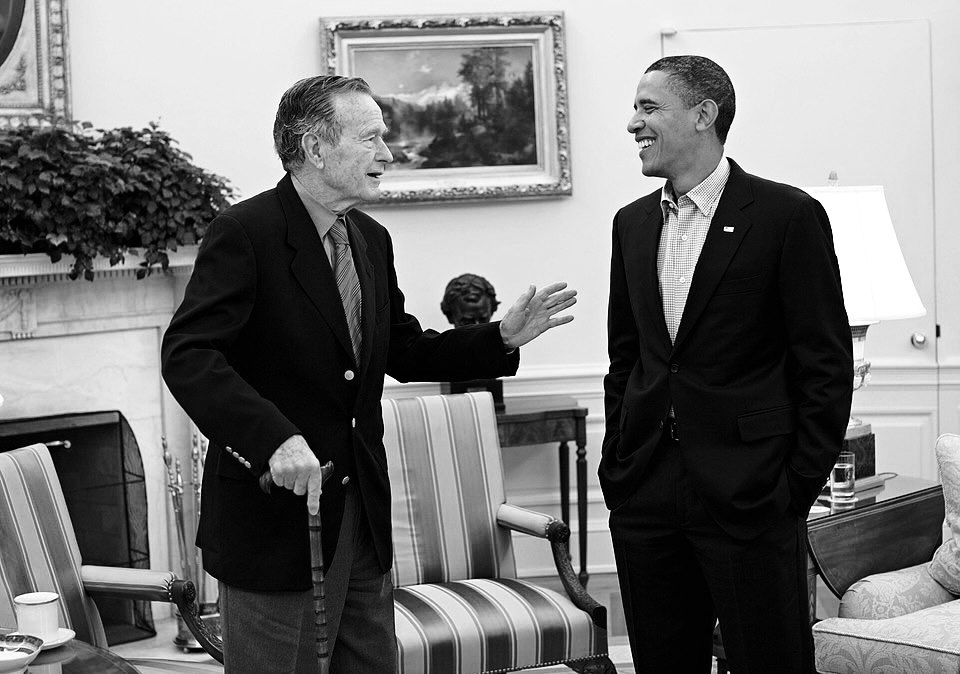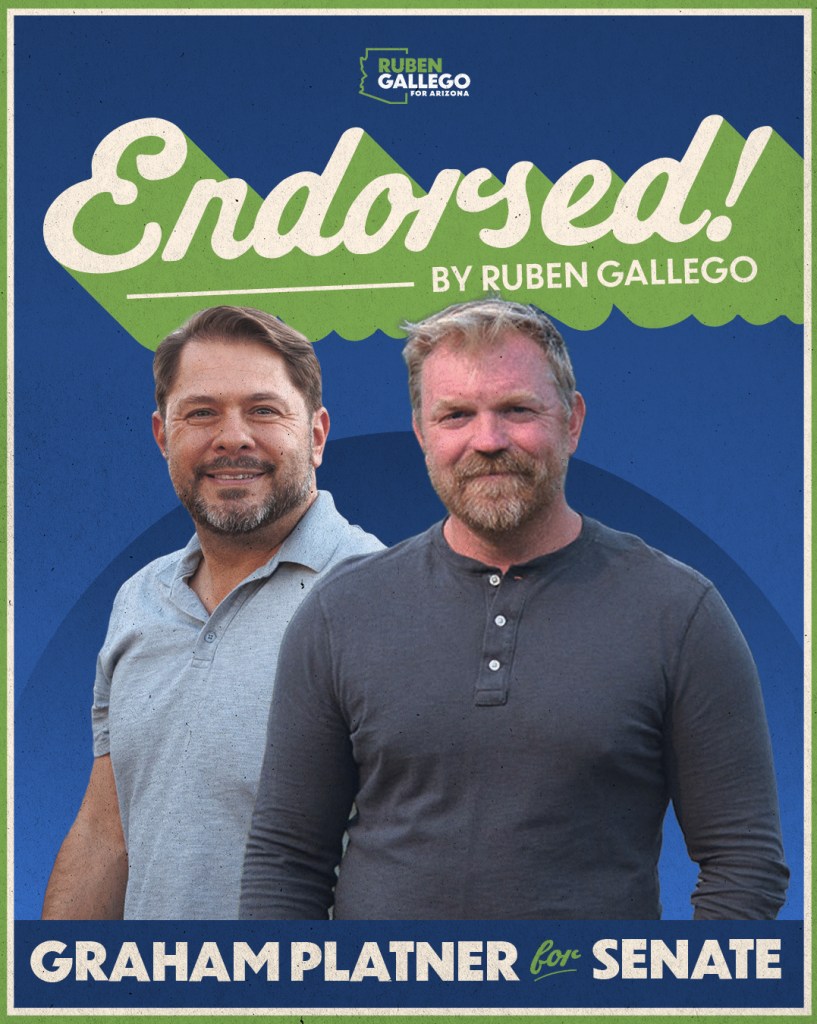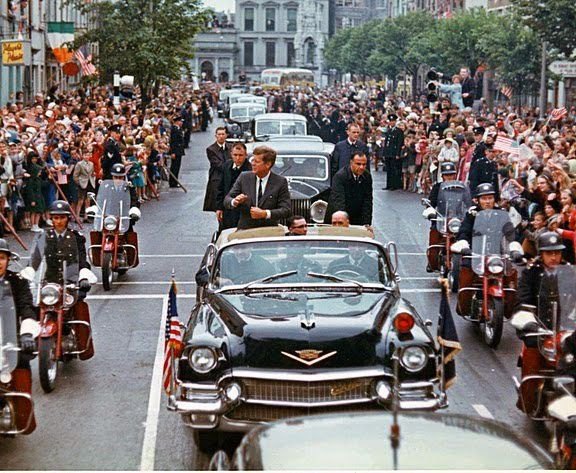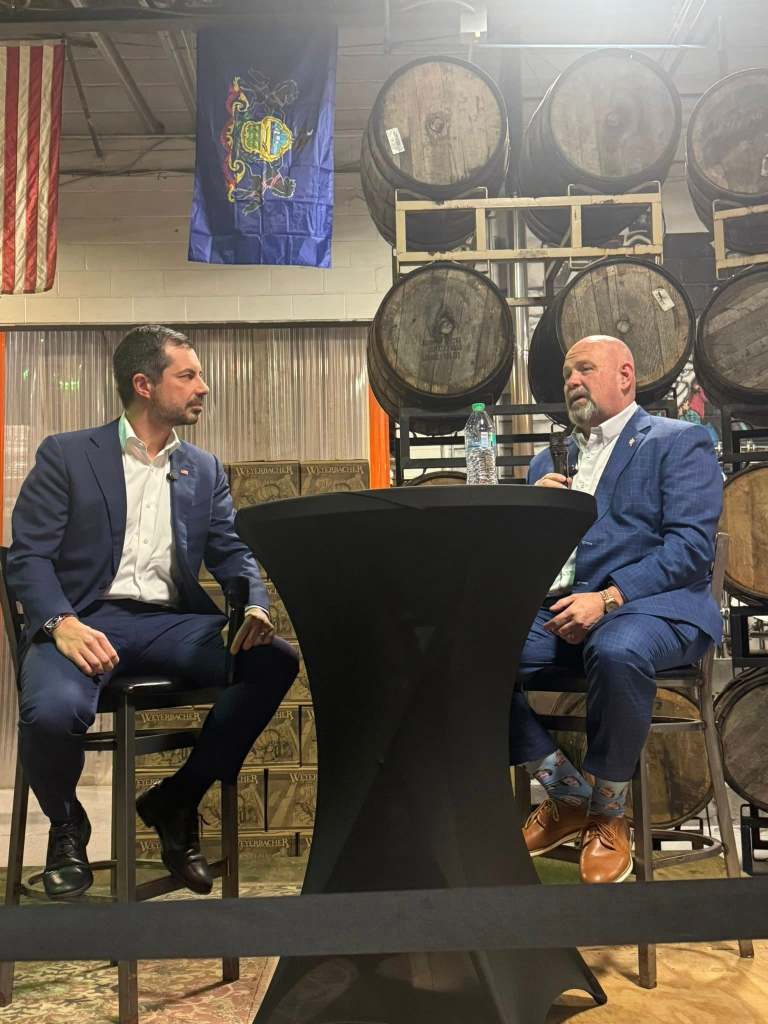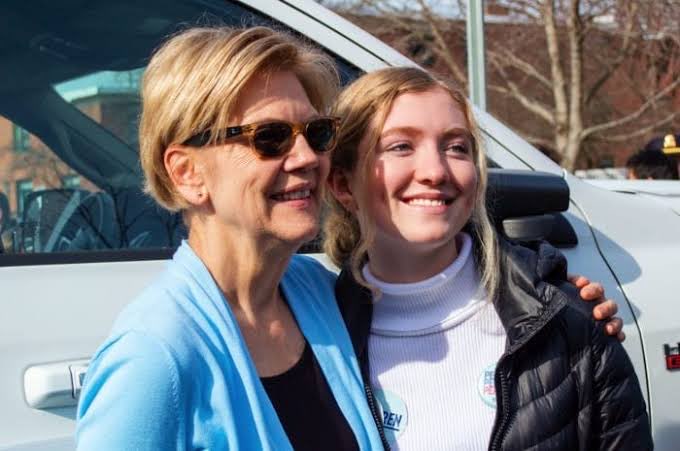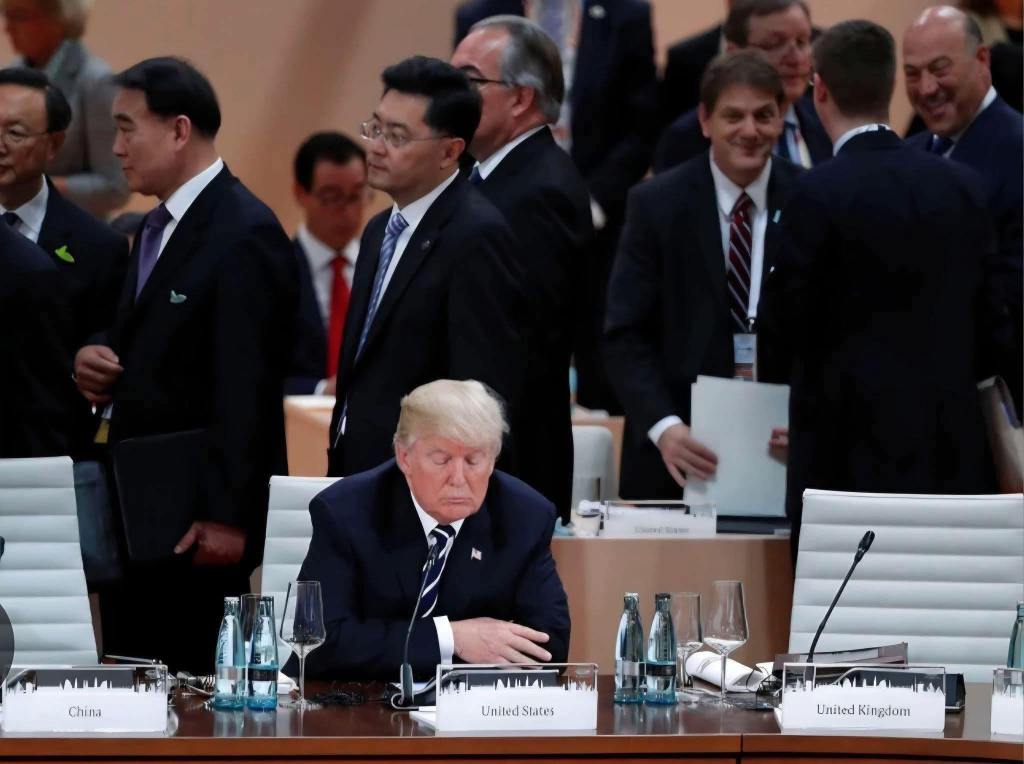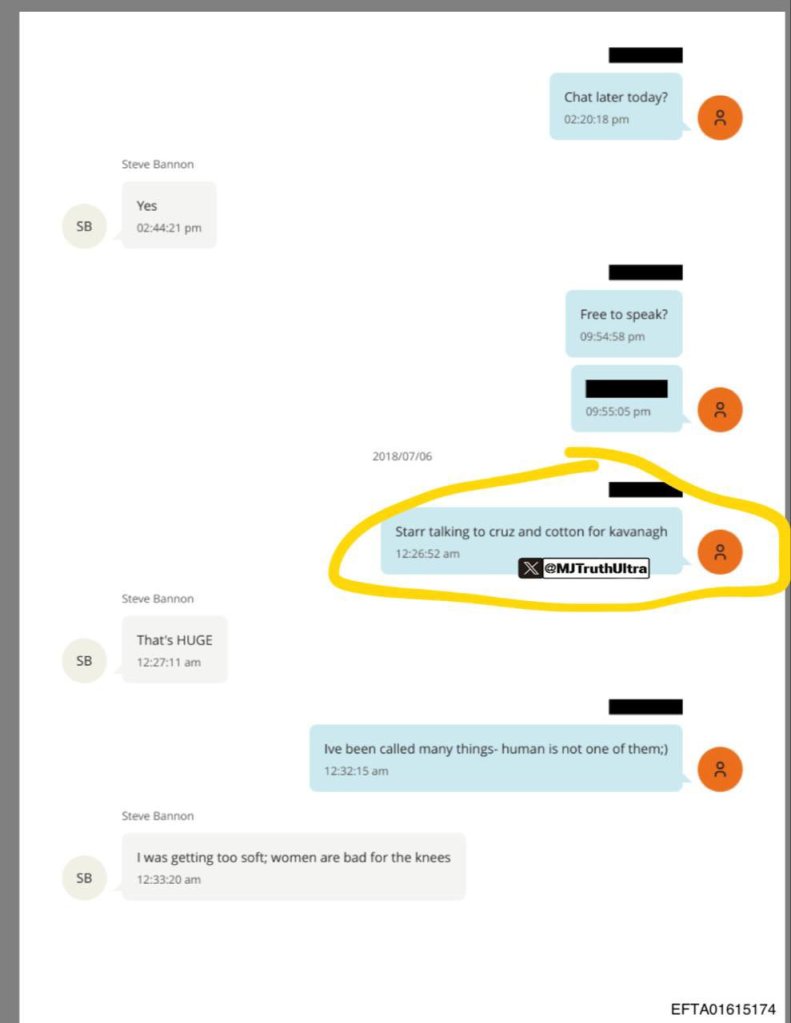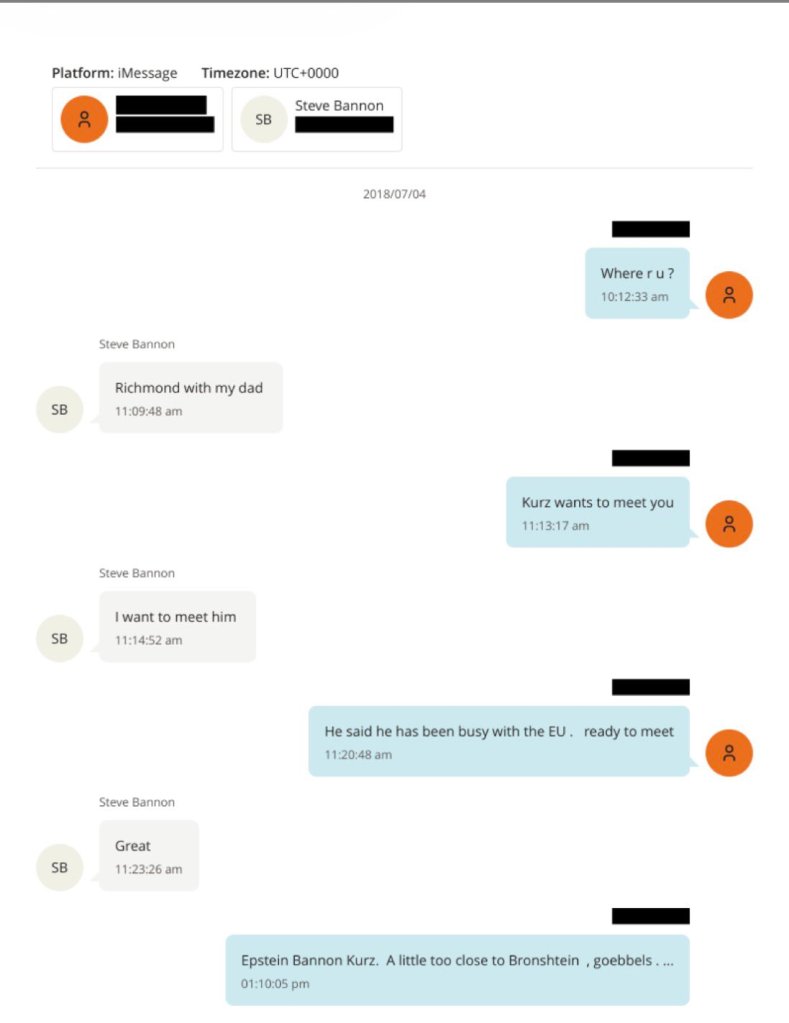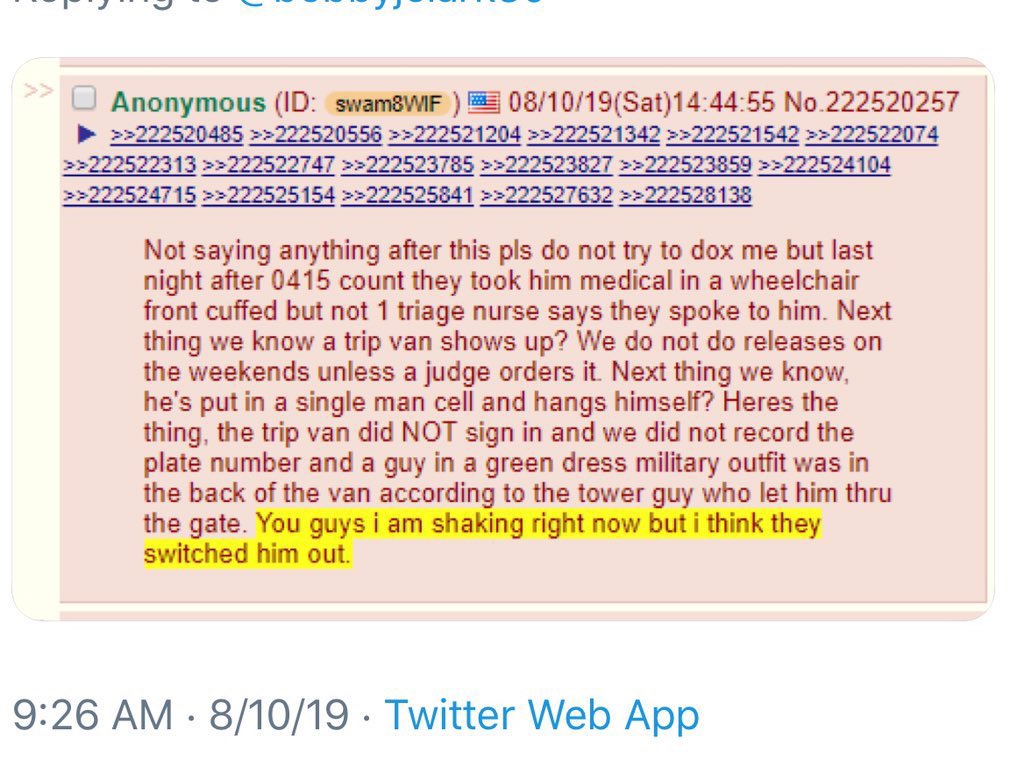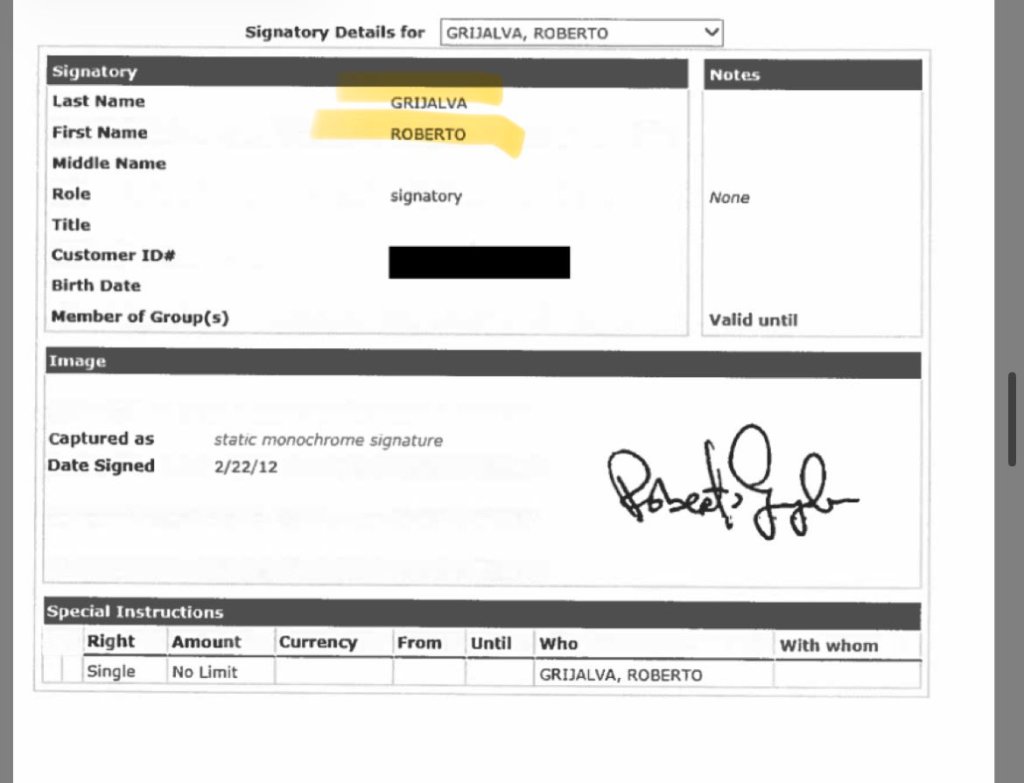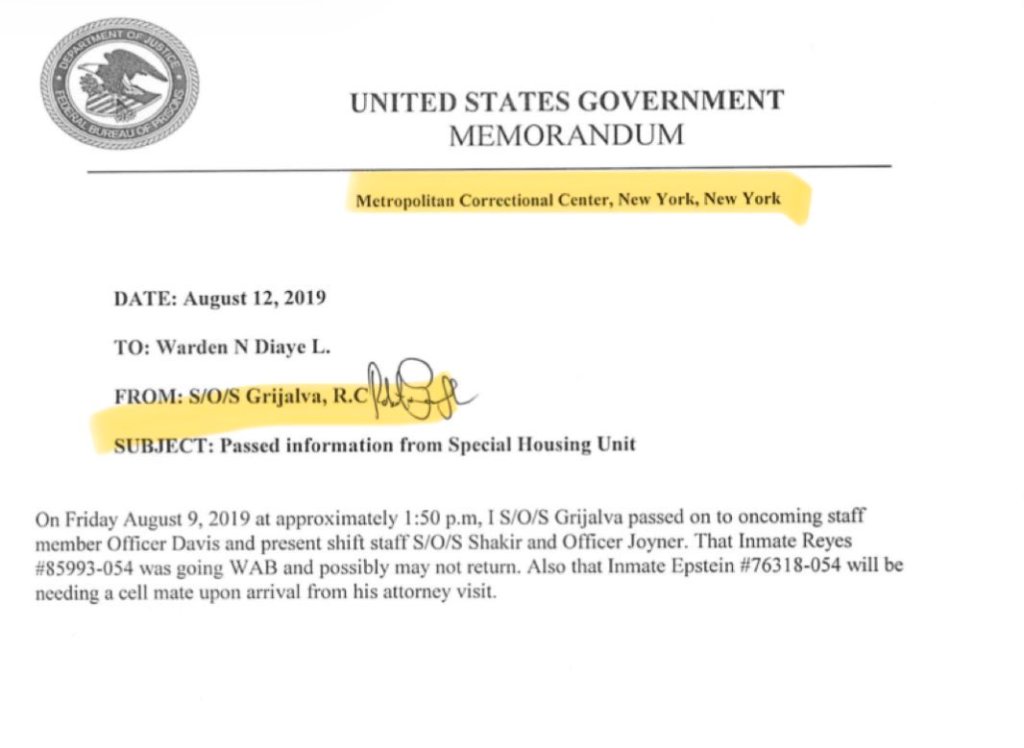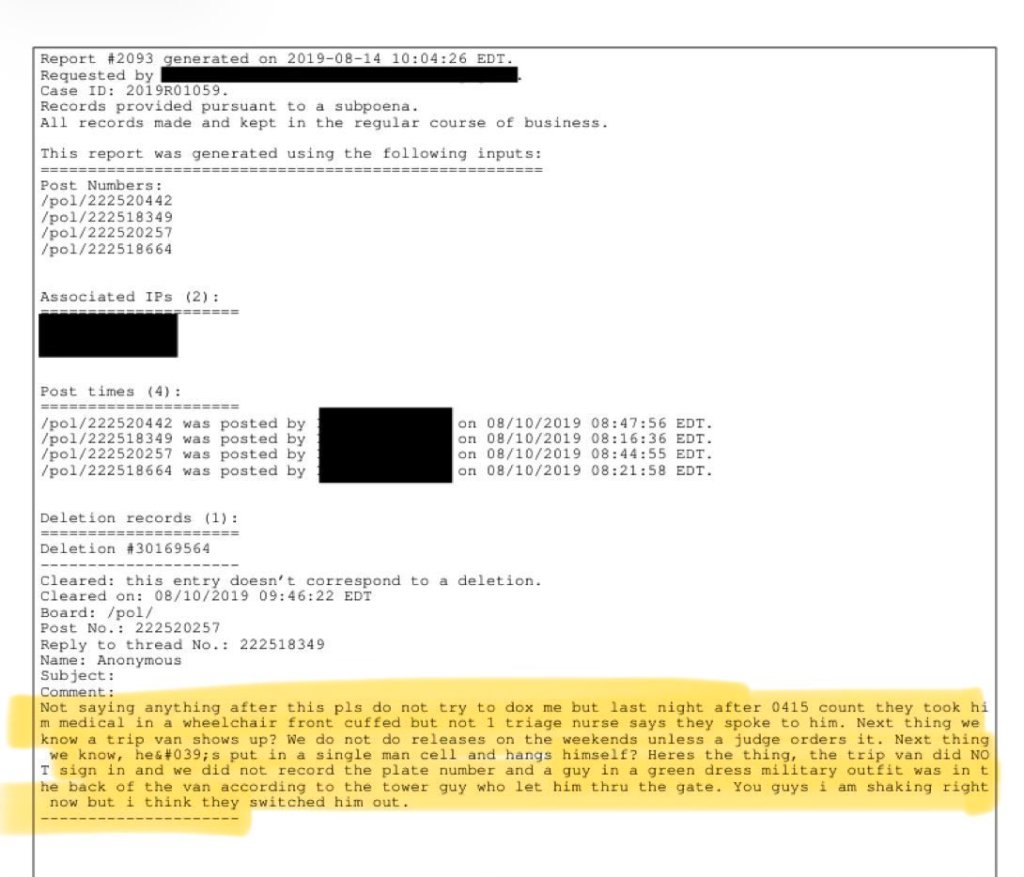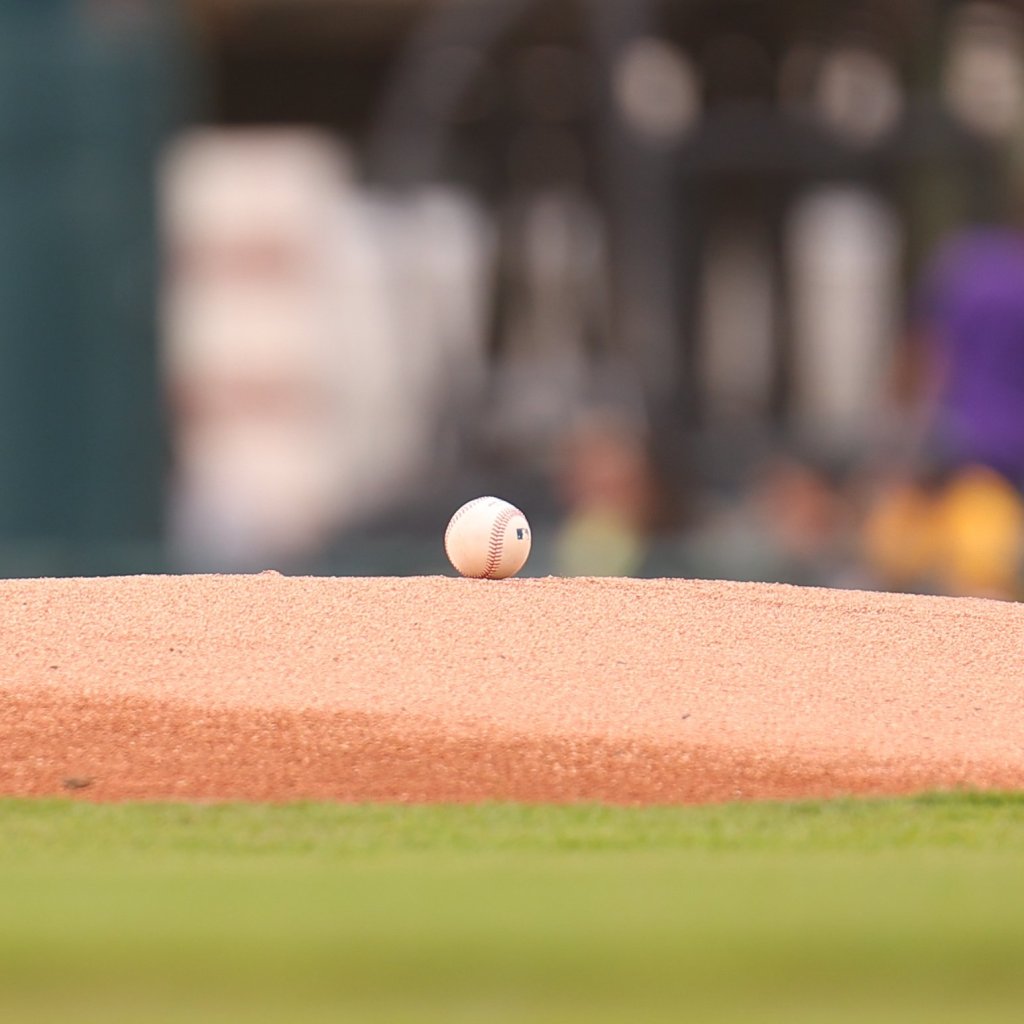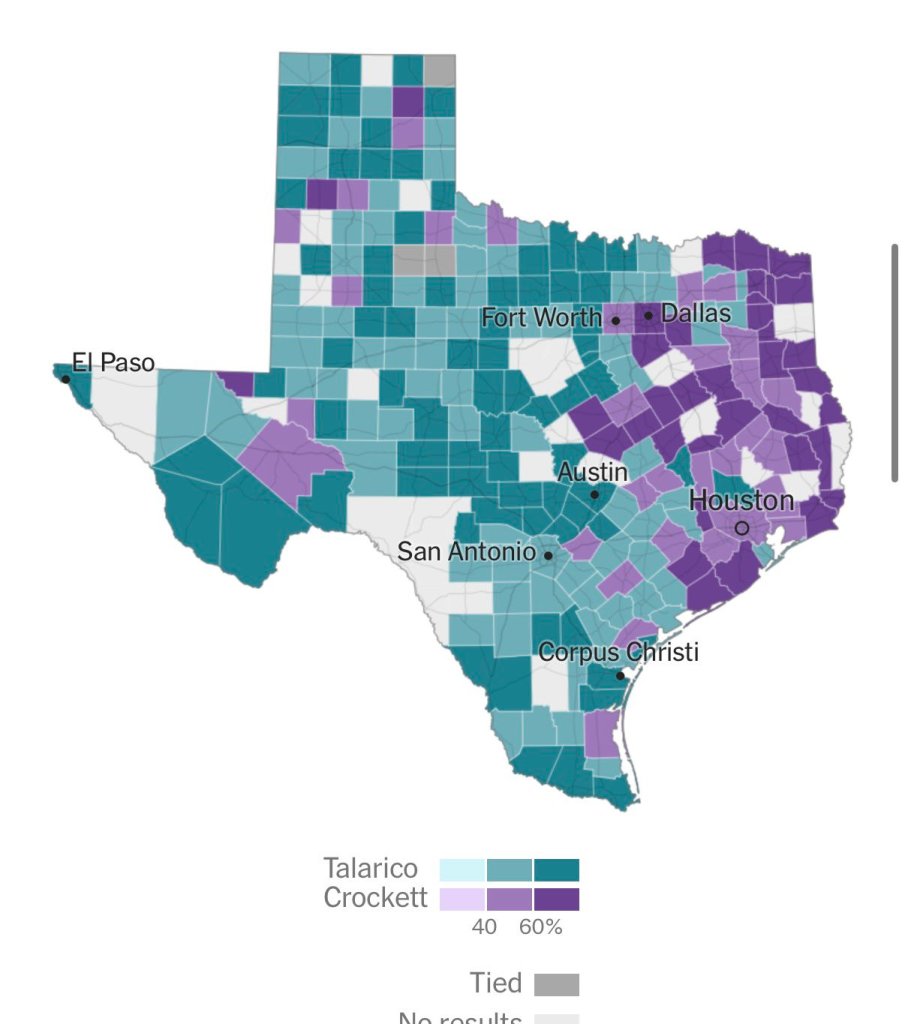
Well thank God that is over…
Before I go all in depth about a primary that I’ve been imploring people to ignore for months (I really can’t see a Democrat winning the Texas Senate race unless everything goes right), let’s take a look at the big picture on the night. For the most part, last night’s primaries were largely inconclusive as to whether or not we’re in an anti-establishment, insurgency election year. Talarico appears to have defeated Crockett in a race where both sides claimed to be something different and new. Christian Menefee, a brand new incumbent Congressman, leads long time incumbent Al Green in Texas 18, but who knows how much we should attribute this to any one specific thing (Green is a lightning rod in many ways). Julie Johnson trails in her Dallas area Texas 33 seat, but she trails former Congressman and Senate nominee Colin Allred, and like Texas 18, it’s most likely heading to a runoff. Embattled Texas 28 incumbent Henry Cuellar smacked his opposition by 15% and avoided a runoff. Over in North Carolina 4, Valerie Foushee leads by about a thousand votes as I write this, or just about 1% against Durham County Commissioner and leftist darling, Nida Allam. There was a ton of spending here, and the late money favored Allam. So yes, there were some very competitive primaries tonight, and some incumbents are going to lose, but not all of them, and some of them are essentially losing to other incumbents. Let’s call it basically what it is, an inconclusive round.
The Republicans had a much more insurgent election, which is remarkable after a decade of the most insurgent movement in modern political history. John Cornyn was very nearly the Senate Majority Leader like 15 months ago and today he’s heading towards a runoff against a guy who almost got impeached and sent to jail (Ken Paxton), and may not even ultimately hold much of a lead when the count is done. In Texas 23, Tony Gonzales “survived” the scandal for having an affair with a staffer who lit herself on fire then, but will go to a runoff. Dan Crenshaw got crushed in Texas 2. In North Carolina, the Senate President Phil Berger is apparently losing his primary by 2 votes. Despite the best efforts of nearly every significant Republican in America to bend over backwards for Donald Trump, the GOP’s cultural purge continues. I’m not even sure what the policy beef is at this point, nor do I think it matters. Republican voters don’t like the people doing Trump’s bidding, even as they like Trump and replace them with harder line candidates.
Now with all of that said, we can have dessert. Obviously the most important Senate nomination of the night was Roy Cooper in North Carolina, the best Democratic challenge candidate for Senate in the country this year. Texas had all the passion though. Now look, I don’t see either of them as winning, but it fired people up. There was a perception of Talarico as the progressive left’s candidate and Crockett as the “establishment” left’s candidate. This is kind of news to people actually important in both wings, but we digress. Crockett’s strategy was simply to double down on the last decade of Democratic strategy, leaning into the base vote hard and confronting Trump’s GOP on all fronts, especially culturally. Even so, many establishment folks privately didn’t see how it would work here. Talarico seems to want to be less culturally abrasive and try to persuade more moderate Republicans and Evangelicals with progressive Christianity style. I’ve said for a while I don’t think either will work, and this is a battle over whether it’s better to lose by 7% or 9%. While I generally do side with candidates like Crockett, I think that Talarico’s strategy has a slightly better (think 0% vs. 5%) chance of victory. I don’t think you can “turnout” your way through a rough electorate, in either a red area or bad year, and I definitely don’t think you can do that in Texas where you’re losing as many Latino votes as you’re winning. Talarico essentially won in any part of the state that doesn’t have a sizable Black population, and his campaign’s work on Latino voters clearly did pay off. Ultimately I don’t think the House Oversight Committee is a great place to launch any statewide campaign unless you’re in a very blue or red state, and Crockett was quite good at her job on that committee- which is probably the wrong skillset for a Democrat to win statewide in Texas. Again, I don’t think it will matter, so I stayed out of this fight largely. My guess is the somewhat bitter tone of this primary will make it hard for Talarico to turn out Black voters in November, but I also think he’ll lose for more reasons than that.
In the one set of bad news from the night, super douchebag and former Yankees First Baseman Mark Teixeira won the GOP nomination in Texas 21 and will probably win big now. I wasn’t a fan as a ballplayer and I’m not a fan now.
